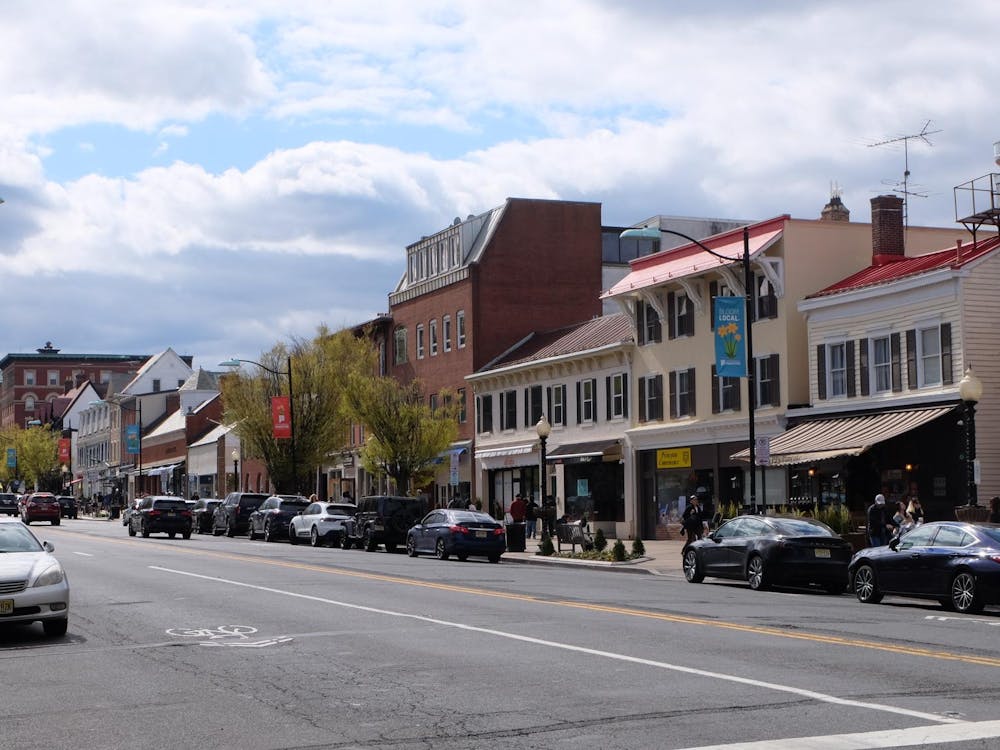Author and The Atlantic features editor Don Peck MPA ’94 discussed the long-term consequences of the current recession on the crumbling middle class on Wednesday, and he asserted that young adults are hit the hardest by the struggling job market.
Peck defined the middle class as those who have earned a high school diploma but not a four-year college degree, which accounts for approximately 60 percent of American adults.
The key to the “hollowing” of this class, he explained, lies in the fact that there has been “almost no net job-reduction among high or low-skill jobs since 2007; almost all job loss since the recession has been to middle-skill jobs.”
Members of the “true middle class,” Peck noted, have been dropping out of their traditional jobs and competing for the low-skill employment that high school dropouts tend to qualify for.
Just as the middle class has been hit harder than any other socioeconomic stratus, history and a vast amount of research indicate that young people are more likely to bear the heaviest burden of this recession than any other age group, Peck said.
“The first few years in the job market are extraordinarily important to setting one’s entire career path, and people who struggle early” — due to a job below their potential, or none at all, he explained — “simply don’t catch up later."
Those who graduate into a recession not only start off behind, but up to 20 years later may still be 10 percent behind their earning potential.
This is because, after being unemployed for more than a year, Peck said, “people start to assume personal or professional dysfunction, and it becomes very difficult to simply resume [a] career, even once the economy comes back.”
Long-term unemployment is a severe psychological trauma, which, according to happiness experts, is nearly equivalent to the death of a spouse, Peck said.
In addition to young adults, men in general have also suffered more than women, he noted. Males have struggled ever since the shift from an industrial to a post-industrial economy, as machines increasingly replaced outdoor, blue-collar jobs; close to 75 percent of pink slips were delivered to men during this recession.
Instead of responding to these changes by attending college, however, Peck noted that roughly the same percentage of men attends college as in 1980, and as a result men have been slowly exiting the workforce.
“Although women tend not to marry unemployed men, they do have children with them,” Peck said. Middle class men who struggle with unemployment lead to changes in family structure and eventually cause intergenerational problems.

Indeed, single parenting in the United States reached an all-time high in 2009, Peck stated, and the “cultural habits and family patterns” of the defined middle class now more closely resemble those of the lower class, while in 1970 their habits better resembled those of the upper class.
For the next five to 10 years, Peck projected, a large portion of the middle class is going to hold jobs that have not historically provided a middle class living.
Peck concluded by stating that “we should redistribute more widely and make the tax code more progressive” in order to increase economic possibilities for young people, who will continue to struggle the most under this recession.
“We’re going to be the ones graduating college, and it’s going to be so much more difficult for us to adjust,” said Spring Davis ’13, who added that she felt Peck’s lecture aptly targeted a young audience.
“[His message] really came across,” Jesse Singal GS said. “It’s something everyone talks about, but not in an intelligent, thoughtful, rigorous way."
Peck covers economics and culture forThe Atlanticand is the author of “Pinched: How the Great Recession Has Narrowed Our Futures and What We Can Do About It." Published this August, it analyzes more than a century of economic recessions and outlines the long-lasting consequences of the current economic downturn.
The lecture, titled “Can the Middle Class Be Saved?” was part of the Wilson School’s “Economic Recovery: Perils, Politics and Possibilities” thematic lecture series and was co-sponsored by the Julis-Rabinowitz Center for Public Policy and Finance.







